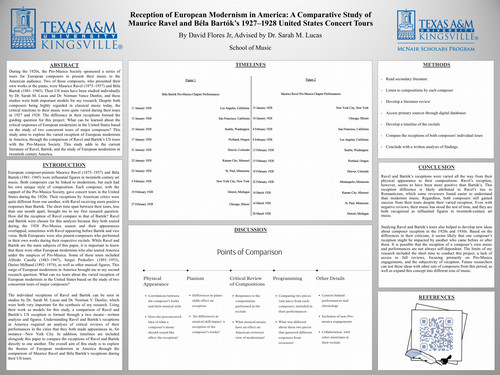During the 1920s, the Pro-Musica Society sponsored a series of tours for European composers to present their music to the American audience. Two of those composers, who presented their own works at the piano, were Maurice Ravel (1875–1937) and Béla Bartok (1881–1945).1 Their US tours have been studied individually by Dr. Sarah M. Lucas and Dr. Norman V. Dunfee, and these studies were both important models for my research.2 Despite both composers being highly regarded in classical music today, the critical reactions to their music were quite varied during their tours in 1927 and 1928. The difference in their receptions formed the guiding question for this project: What can be learned about the critical responses of European modernists in the United States based on the study of two concurrent tours of major composers? This study aims to explore the varied reception of European modernists in America, through the comparison of Ravel and Bartók’s US tours with the Pro-Musica Society. This study adds to the current literature of Ravel, Bartók, and the study of European modernists in twentieth century America. This paper includes a comparative analysis of Ravel and Bartók’s receptions, as well as timelines representing their respective tours.
Faculty Mentor: Dr. Sarah Lucas
School of Music


